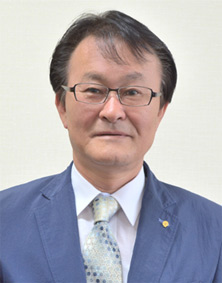Correlation between Social Capital and the 4th Industrial Revolution
[Ahn Byung-il (Ahn Byung-il is the secretary-general of the South Seoul Scout Council and an adjunct professor at Global Cyber University]

Everyone talks about the 4th Industrial Revolution these days. The contemporary society has countless challenges to resolve everywhere and there are various diversified issues that cannot be resolved by human or material resources. The needs for quality social capital have been suggested to supplement the scarcity of those resources.
Social capital has emerged as the third or fourth capital in addition to the human capital and material capital. Social capital includes all social values and social assets that promote cooperation and collaboration in social relations, along with all trust, norms, networks (communication, empathy), and systems that promote social cooperation and collaboration.
Korea considers social capital when establishing the national vision. The development of social capital is an important policy goal along with the strategies to expand the economic growth engines, advance human resources management, and improve social welfare, and globalize actively, and closely correlated with many strategic assignments.
Social capital can promote the growth engine in many parts of social life and it is perceived as a major power of social development in the future although it is not actually tangible right away, unlike human and material capitals. Also, various efforts are constantly made to apply it to the development of various areas.
The world is deeply interested in social capital because it is based on the relationships of community life. In fact, communities with strong social capital can promote social value and social collaboration, improve welfare, and see a decrease in various complicated social problems, including the crime rate.
Also, social capital can also encourage the social members' constructive behaviors to enhance the efficiency of social structure and it is a comprehensive social commodity that can improve various negative aspects that occur in social life.
Now, what does the 4th Industrial Revolution mean and can we live happy lives using it in the contemporary society?
The term 4th Industrial Revolution was first used 8 years ago (2010) in Germany. The 10 projects of Hi-tech Strategy 2020 were projected, and the term was first used as the "convergence of manufacture and information communications" in the Industry 4.0 project. Later, many scholars around the world began to discuss the 4th Industrial Revolution and the subsequent changes in the industrial societies.
Klaus Schwab defined the 4th Industrial Revolution in his 『The 4th Industrial Revolution』 as “the technological revolution that radically changes the economic systems and social structure with the convergence of technologies in digital, bioindustry, and physics based on the 3rd Industrial Revolution.”
Also, World Economic Forum defined the 4th Industrial Revolution as "an era of technology convergence where the boundaries of physical spaces, digital spaces, and biological spaces blur based on the digital revolution" at the Davos Forum held in January 2016.
The 3rd Industrial Revolution was the time of information technology focused in computing (1960s), PCs (1970s~1980s), and the Internet (1990s), whereas the 4th Industrial Revolution interconnects people to people, objects to objects, and people to objects with super-connective and super-intellectual characteristics. However, nothing can surpass people.
What are common between the meaning of the 4th Industrial Revolution defined by World Economic Forum and the futurists and the meaning of social capital are the factors of trust, networks (communication, empathy), collaboration, and norm, you can say that they share common components.
Since the 20th Century, many countries around the world, including the UN, have had the critical mission to achieve national development and the development of mankind and set social value as the major target to make a lot of investment for national powers.
Many people say that the contemporary societies are going through an era of chaos and contradiction with the grand tradition. In order for us to live more beautiful and happier lives, it is critical to comprehend the meaning of social capital and the 4th Industrial Revolution to shift the paradigm and achieve transition to an era of wisdom and insights.
Living in the contemporary society, we must be well-aware of the emergence of the 4th Industrial Revolution and develop social capital for the contemporary people to become the competent leaders of sound social activities and serve as the quality democratic citizens that countries and societies need.
이코노미톡뉴스, ECONOMYTALK
pr@economytalk.kr 로 보내주세요. 감사합니다.




